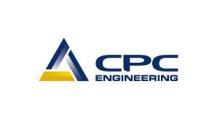

How do decarbonisation, electric vehicles, energy storage systems, and smart devices benefit Western Australia? They all involve modern li-ion battery production using minerals sourced in the state. WA has the components for modern battery technology, especially lithium. Lithium is an integral component of li-ion batteries, used in everything from smartphones to electric vehicles.
Just a decade ago, WA had just one lithium mine in operation. Now, our world-class resources sector, geographical proximity to Asian end-users, and around $4 billion investment in lithium production, means WA leads the lithium value chain. In fact, it now contributes to over 50 percent of the world’s lithium supply.
The Association of Mining and Exploration Companies forecast that the global lithium value chain will be valued at $2 trillion by 2025. However, most downstream value-adding activities like refining and battery manufacturing currently occur in Asia, which seems a missed opportunity for WA. Around 90 percent of Australian battery minerals are refined in China, and China produces half of the world’s li-ion batteries.
But WA has unique competitive advantages, and is ready to play a bigger piece in this value chain. By investing in domestic refining facilities and battery manufacturing, WA can advance to the centre of the lithium supply chain, and foster a new wave of clean energy technology.
Some WA lithium producers are taking the lead – investing in battery-grade lithium hydroxide production, thus ensuring this step in the refining process happens in WA. An example is the near complete Tianqi lithium plant in Kwinana, which will be the largest lithium hydroxide plant in the world. A further four refineries are planned for WA in the next five years. Moreover, the Government has put $25 million of Commonwealth funding to top up the $6 million contribution from the McGowan Government to fund the Future Battery Industries Cooperative Research Centre (FBICRC) in Perth. The mandate of the FBICRC is to grow Australia’s competitiveness in the global battery industries value chain.
Our state has potential to become a significant manufacturing hub for li-ion batteries and battery packs, for global automotive and grid-scale markets, through partnering with leading Asian and Western manufacturing businesses.
















